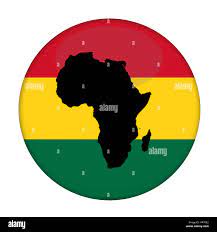The $20 billion yearly trade between Russia and Africa will be affected by the Russia-Ukraine war, a report has shown.
But Nigeria is expected to increase its oil and gas export to Europe following the raging war, which has resulted in sustained disruption to supplies from Russia.
In a report to investors entitled: “War in Ukraine weighs on African FX”, AZA, a global forex dealer, said African countries, including Nigeria, Algeria, Tanzania and Mozambique could boost exports of gas and oil to Europe and other places during the war.
Nigeria is a key LNG supplier to Europe and last year’s exports amounted to $12.63 billion cubic metres (Bcm), according to data from S&P Global Platts Analytics.
The biggest buyers were Spain with 49 cargoes supplied or 4.3 Bcm of gas equivalent; France (38 cargoes), Portugal (34 cargoes), and Turkey (15 cargoes), the data showed.
Last year, several LNG cargoes were also despatched each to Croatia, Greece, Italy, the Netherlands, and the United Kingdom.
Nigeria’s six-train LNG export facility has a capacity of 22.5 million metric tonnes (mt)/year (31 Bcm/year), but with the addition of a seventh train, it is being expanded to 30 million mt/year.
Nigeria and the EU are considering “all options” for increasing the supply of NLNG products to Europe, as Brussels continues its push for engagement with its gas supply partners amid the standoff between Russia and the West over Ukraine.
Concerns over Russian gas supply to Europe have seen the European Commission make significant diplomatic efforts in recent weeks to seek more gas deliveries from alternative suppliers.
The AZA report added that Russia’s invasion of Ukraine has sent oil prices surging to their highest in eight years, putting increased pressure on oil-importing African economies such as Kenya, where the Shilling fell to an all-time low last week.
It said while Africa-Russia trade, amounting to $20 billion of imports and exports last year, is likely to fall, the bigger impact for most Africans could see further increase in the price of food partly because Ukraine is one of the largest exporters of wheat, especially to the Middle East and North Africa.













































